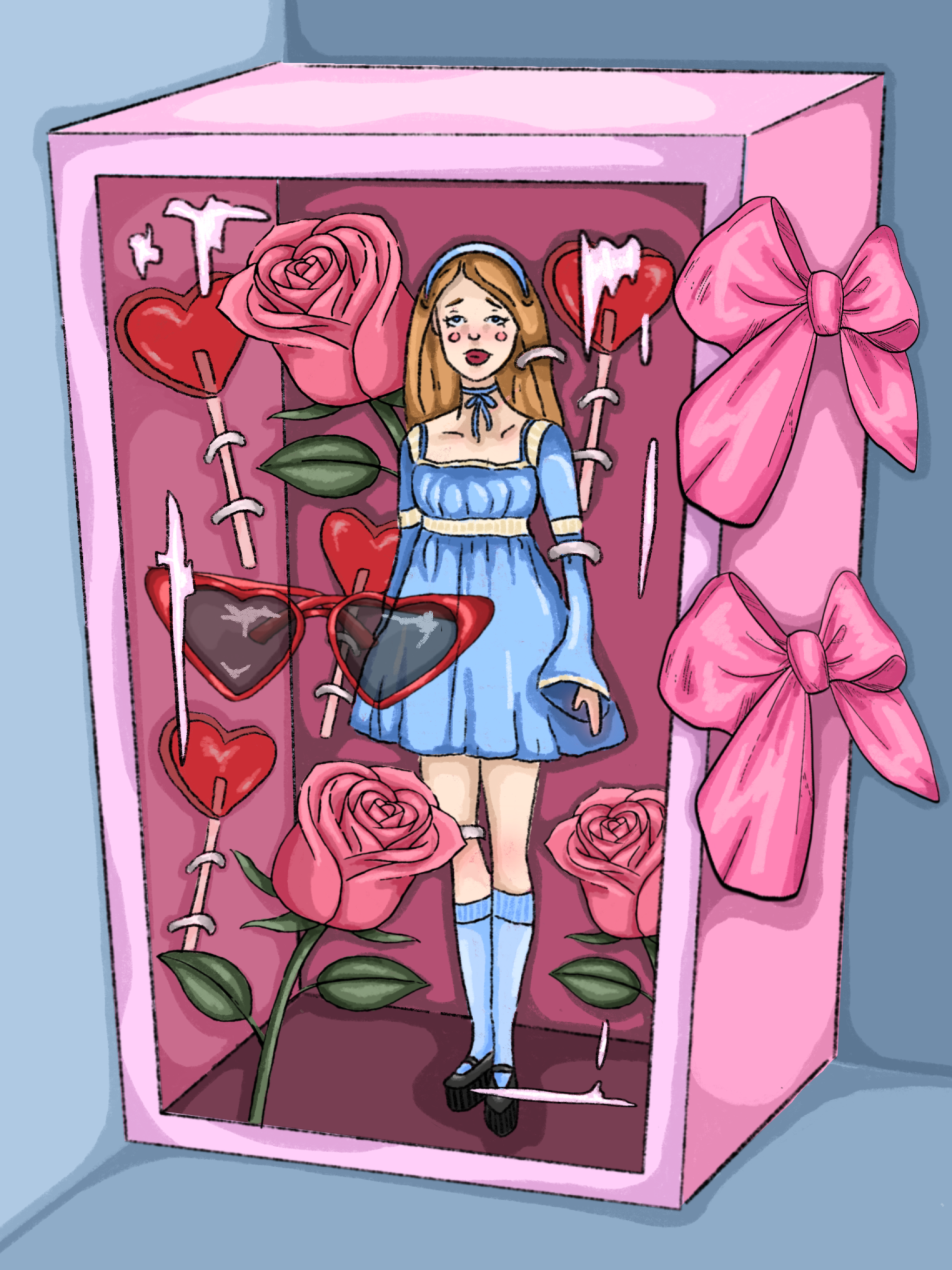The 1955 novel “Lolita” by Vladamir Nabokov depicts a predatory, sexual relationship between a 12 year-old girl and her middle-aged stepfather. For some incomprehensible reason, Hollywood produced two film adaptations, each being just as controversial as their source material. And from those movies, a highly disturbing aesthetic was born, blending the childlike innocence of pastel colors and lace with the sexualization of children.
TikTok users interchangeably call the aesthetic ‘nymphet’ and ‘coquette.’ The style’s distinctive pink bows, glossy lipstick, and frilly skirts now populate people’s feeds, promoting luxurious handbag accessories and elegant perfumes. While the clothes themselves aren’t an issue, the nymphet aesthetic harbors deep thematic undertones regarding the fetishization of young girls. The aesthetic is as twisted as it is cutesy, and knowing the backstory is crucial to understanding why.
In the book “Lolita,” the unreliable narrator is a male professor. The explanation given for his horrifying actions and mentality is that when he was thirteen, he met a girl with whom he fell in love. She died shortly after their affair began, and because he was never able to consummate the union, he became enraptured by that particular age group of girls. He spends the rest of his life in pursuit of what could have been. He obsesses over the innocence of young girls and later begins to molest his 12-year-old stepdaughter. The professor refuses to see his victim as a human being, and instead refers to her as a nymphet.
Coquette draws inspiration from the “Lolita” movies as well as the book, both of which are disturbing. While the aesthetic’s thematic elements may have been drawn from the book, the visual style comes from the 1962 film. On the movie’s poster, the young girl who was subjected to the molestation wears a pair of bright red, heart-shaped sunglasses. Similar sunglasses have popped up throughout TikTok in posts displaying the nymphet aesthetic.
It should be clear that coquette is rooted in pedophilia, which is more than a little disturbing. But is it causing current harm to internet users? The answer is undoubtedly yes; this aesthetic’s dark side goes deeper still.
There are many critical ways that nymphet is actively harming people on the internet. The aesthetic depicts childlike petiteness as a desirable and attractive trait. Skinny, pale skin is put on a pedestal and treated like the embodiment of innocence and purity. This style of hyper-feminine fashion often excludes diversity in many aspects. Nymphet fashion idealizes and sexualizes unhealthy weights, which in turn eroticizes eating disorders. This aesthetic is appalling in every manner, from its origin to its modern-day romanticization of pedophilic and exclusionary ideals, and cannot continue to disguise itself as an innocent expression of self.





